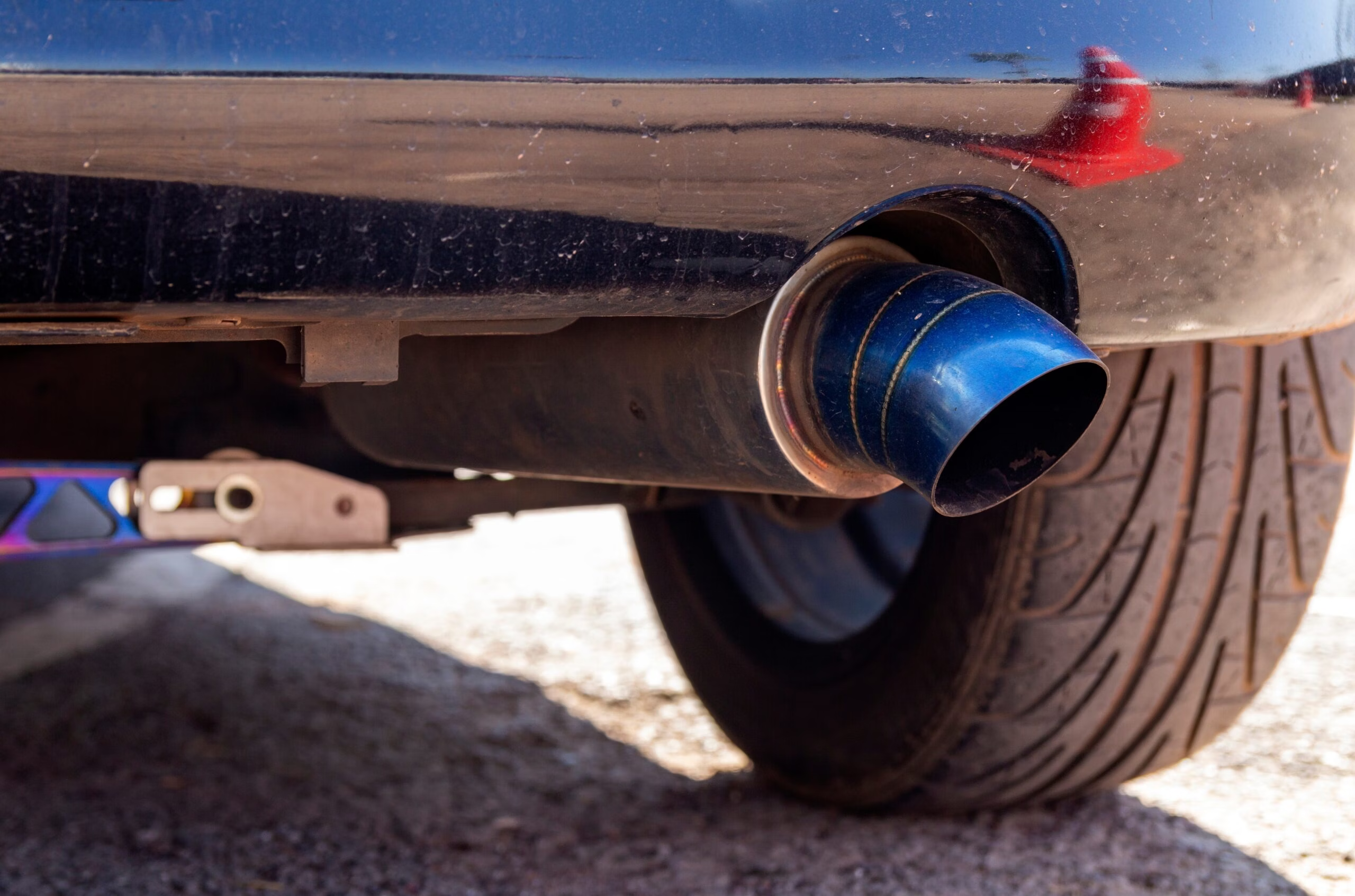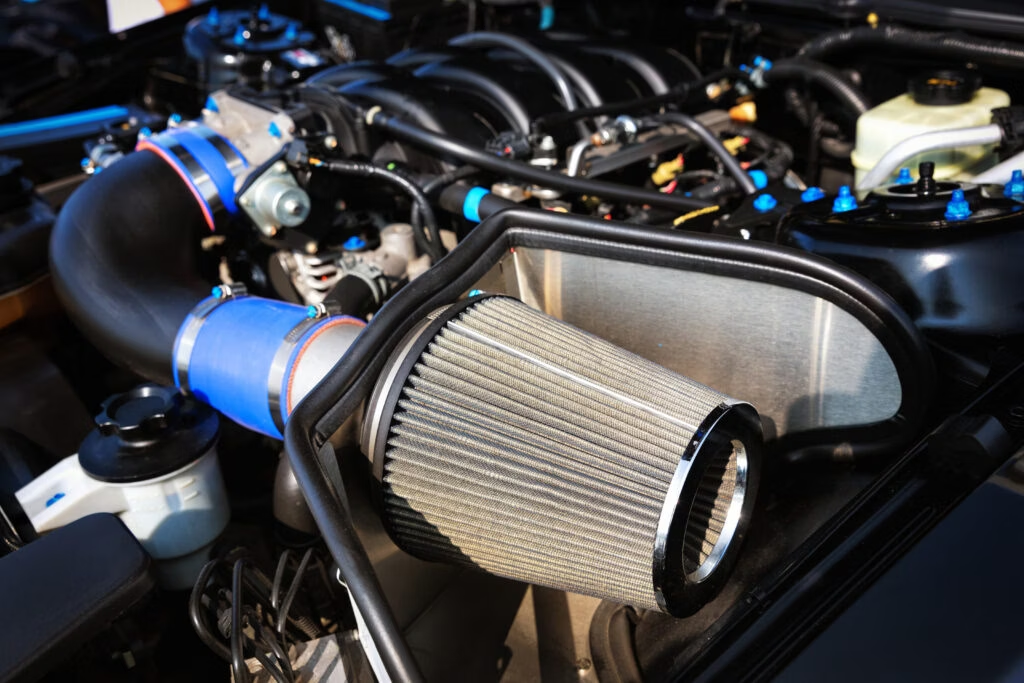Do modifications impact the value of your car?

Personalising your car or van is one of the joys of vehicle ownership. But did you know that these customisations and modifications can affect your car’s value down the road?
From performance enhancements to aesthetic changes, every alteration can influence resale price, not to mention the size of your potential customer pool. Learn just how modifications play into pricing so you can maximise the value of your vehicle whenever you decide to sell your car.

Car modifications 101
Car modifications are alterations made to a vehicle’s original specifications. These alterations fall within two general categories: aesthetic updates or performance enhancements.
Aesthetic modifications
Aesthetic upgrades change the look of your car. These cosmetic changes include fresh paint jobs and upgraded body kits, such as aftermarket body panels, spoilers, or aerodynamic enhancements, to enhance your vehicle’s visual appeal.
While people don’t generally shop for cars based on appearance alone, special features can help your car stand out. The addition of stripes and badges, changes to upholstery, revamped dash hardware, or alloy wheels can help increase your car’s valuation when in front of the right buyer.
Performance upgrades
Performance enhancing modifications are designed to boost the capabilities and functionality of your car or van. Common engine upgrades include installing aftermarket components such as turbochargers, superchargers, or performance exhaust systems to boost horsepower and torque. Car enthusiasts often also modify their vehicle’s suspension systems, adjusting or replacing components to improve handling, cornering, and overall driving dynamics.
In addition to engine upgrades, another significant performance enhancement is rewriting your car’s Engine Control Unit (ECU). Called ‘remapping,’ this process overwrites the preset factory configurations of your car’s ECU, which controls your engine’s settings. The ECU also controls several crucial vehicle functions, including airbags, door locks, emergency braking, and engine responsiveness. While car enthusiasts remap their cars to enhance engine power, this should only be done by professionals – accidents or incorrect recapping could have catastrophic consequences on your car’s functionality and resale price.
Some car modifications are more extreme than others, but anything that makes your car look or drive differently to its factory settings will likely impact your selling power. Other popular added features and amenities including:
- Installing a sunroof
- Updating audio equipment
- Adding a touchscreen
- Adding seatwarmers or massaging seats
Car modifications and resale value

Whether big or small, modifications can significantly influence your car’s resale price here in the UK. Precisely how much your car is worth after you’ve made custom changes depends on who you’re selling it to, as well as the quality of the modifications, their compatibility with your vehicle, and market demand for cars or vans with these components.
Remember: not all mods are to everyone’s taste. For example, cars in neutral colours, like grey, black, and white, are likely to sell quicker – and for more money – on the resale market.
With modifications, these five factors are likely to impede getting a strong resale price:
1. Poorly functional aesthetic changes – mismatched paint jobs, poorly fitted body kits, or tacky decals that detract from a vehicle’s original design, are non-functional, or appear cheaply executed can impact overall pricing. These alterations can diminish your car’s visual appeal, ultimately reducing its resale value.
2. Extreme engine modifications – modifications like oversized turbochargers, engine swaps, or radical tuning that push the engine beyond its design limits do not typically fare well on the resale market. While these changes may enhance performance, they often compromise reliability, leading to concerns about long-term durability and maintenance costs, thereby decreasing the car’s value.
3. Non-reversible alterations – when it comes to car modifications, reversibility is key. Permanent changes to the vehicle’s structure or functionality, such as extensive body modifications or chassis alterations, can limit the car’s appeal to a broader audience and impact future insurance. As a result, resale value tends to decrease due to niche appeal.
4. Unapproved or illegal modifications – it’s important to remember that some modifications are illegal in the UK, meaning that they don’t just ruin your car’s valuation, but they make it completely unroadworthy and uninsurable. These include modifications that violate regulations or safety standards, such as tampering with emissions control systems, removing catalytic converters, tinting windows or headlights, and altering vehicle dimensions beyond legal limits.
5. Incomplete or inaccurate documentation – always document changes to your vehicle! The absence of documentation raises concerns about the quality of workmanship, hidden issues, and the validity of the bmodifications, all of which can diminish buyer confidence and reduce the car’s value. Complete and accurate documentation is essential for transparency and reassurance in the resale process.
While we always advise getting an instant valuation before choosing to sell, keep in mind that these valuations may not be an accurate representation of your vehicle’s true sales price as they do not take modifications into account.
When selling your vehicle, it’s essential to list all modifications you’ve made, even if they’re not visible.

FAQs
What happens if I don’t declare modifications on my car?
Failure to declare modifications can void insurance coverage or lead to rejected claims if discovered later. Your insurer may give you a reduced rate, refuse to pay out, or declare your policy invalid altogether.
Not disclosing vehicle modifications can also result in legal consequences for providing false information to insurers, potentially affecting future policies and premiums.
Remember: it’s illegal to drive without insurance in the UK, so keeping your insurance company informed about all modifications is essential.
Can a remap cause MOT failure?
Yes, a car remap can cause MOT failure if done incorrectly. Engine remaps that alter emissions levels beyond legal limits or affect safety features will result in failing the MOT exam. Ensure any modifications comply with regulations to avoid MOT issues.
What is the best car to be modified?
The best car for modification depends on personal preferences and intended use. Generally, vehicles with readily available aftermarket parts, strong aftermarket support, and robust engines are popular choices for modification enthusiasts.
Need to sell your car?
Want to learn more about owning, maintaining, and selling your car? Check out more of our guides here, covering everything from Clean Air Zones to car tax, and plate changes to part exchange.
The information provided on this page is for general informational purposes only and should not be considered as professional advice.